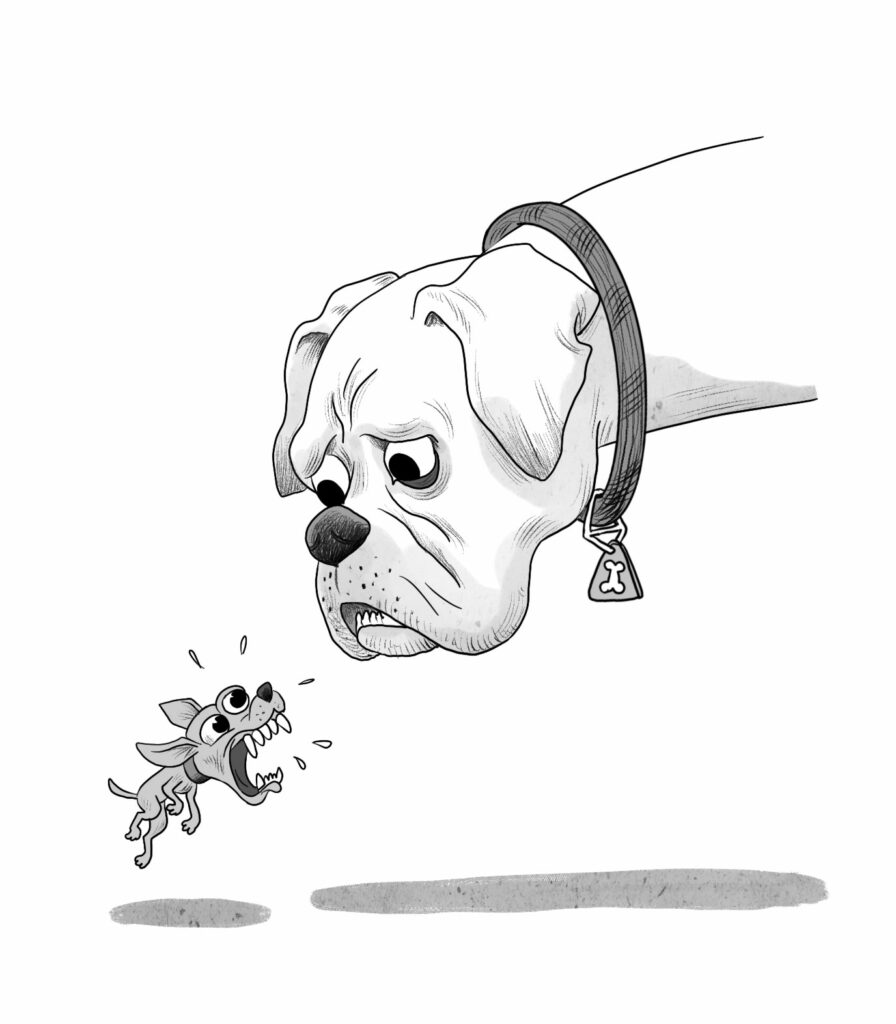
Why is getting the “X-ray” scan of your value system the best investment for your wellbeing
By Senka Holzer, PhD
Scanning your value system
Based on what we learned from coaching our clients, as well as completing a rigorous scientific study, we now understand that we have not one, but two sets of values—our core values, and our acquired values. Core and acquired values coexist within each of us, meaning that we are driven by two rival value systems that exert powerful influences on our beliefs, goals, and daily actions, but are by far not equally efficient in bringing us lasting satisfaction and deep fulfilment.
We are born with our core values. They are the things that give us pure joy, the things that matter more than anything else. Our core values are inherent, meaning that we act on them without any extrinsic influences or rewards. We cannot help it, we naturally act on those values, because that is who we are. Through acting on our core values we express our true self with candor, without censoring or restraining. We don’t do it for the applause, or for the social media likes. And we don’t need to justify ourselves.
Too theoretical? Imagine a little boy stealing money from his parents to buy bird food. Watching the flow of tiny seeds pouring into the carefully crafted birdhouse makes his heart sing. He quickly loses sense of time and forgets about the punishment waiting for him when he returns home. He is purely in the moment.
This little boy doesn’t pity the birds, his actions are not motivated by guilt. Neither his parents nor his teachers suggested that he feeds the birds—he’s just naturally driven to see little beaks crunch the seeds. His decisions come from a joyful place and he is fully immersed in his act. He’s never been rewarded (rather punished if caught!), and frankly, nobody ever noticed the attention he dedicates to caring about the birds.
This awesome little boy is now my husband. And he keeps feeding birds with the same passion and joy thirty years later (no more money stealing because, ahem, I’m the value expert). You won’t be surprised to hear that two of his top core values are appreciating nature and helping others.
This example may sound simple—even trivial—but because of the high level of self-awareness it requires, understanding our core values is a tricky process. In addition, our search to know ourselves is further complicated because we also adopt values along the way from outside sources—sources such as our family, friends, institutions, (social) media, pop culture and politics. These acquired values represent what others have told us is necessary to achieve lasting wellbeing and they became social standards on how to act, what attitudes to hold, and how to judge or compare ourselves with others. But here’s the problem: Because acquired values don’t reflect what innately matters most to us, people who invest heavily in their acquired values while ignoring their core values often find themselves emotionally exhausted, and hungry for meaning, purpose, and genuine fulfillment.
To understand this second set of values, consider a young woman (a.k.a. my bestie) who is about to enroll in college. She only has a slight awareness of what makes her tick (traveling, coffee, and her dog), yet she is persistently told that her life, status, and fulfillment, all depend on choosing the right profession. Programmed to believe the right profession is stable, challenging—so you have to work really hard—and high paying, she enrolled in technical engineering. Because she made choices rooted in values she acquired from her parents (status, hard-work, and wealth), she struggled to pay attention and had to force herself to complete each assignment. It took her eleven years to earn a degree.
We need to take the time to distinguish between our core and acquired values because even “big things”—the corner office, the nice house, or a technical engineer title—rooted in our acquired values won’t bring us the same genuine fulfillment as “feeding the birds.” When acquired values overshadow our core values, we enter the rat race—a self-defeating, pointless, but hard-to-break pursuit.
Core or Acquired?
I can almost hear the burning question: How do I tell the difference between a core and an acquired value? Here’s what you can start considering:
Want or Should? Think of your core values as your favorite music, your all-time greatest hits playlist. The music you play when you feel free to be you. When you act on your acquired values you are playing music for the crowd. You may hate Today’s Top 40, but you play it because it’s what others want and expect.
Just a Fling or Love of Your Life? Pursuing our acquired values gives us momentary flashes of happiness that don’t last. Today, when Bestie thinks of an academic accomplishment that she received some years ago, it has only little, if any, meaning for her. In contrast, the positive effects of aligning ourselves with our core values accumulate over time and brings long-lasting happiness. When Husband remembers his bird-caring-adventures he feels joy; it gives him energy and a sense of purpose in life, even years after these adventures took place.
Devil or Angel? Acquired values are like the devil on our shoulder, constantly whispering negativity into our ear. When we’re younger, this voice is external, but over time, our brains internalize and repeat the stories others gave us.
“Ay, Chihuahua!” (a.k.a. The devil on your shoulder)
So, if our core values are so deeply and intrinsically part of us, why don’t we naturally reflect our authentic selves and live from only our core values?
Check out this illustration.

It captures 100% my interpretation of the interaction between our core and acquired values. Our acquired values act like the angry, feisty, barking Chihuahua, making up for feeling small by being loud and aggressive. On the other hand, our core values know their own worth; they don’t need to bark for attention. Patient like this Boxer, they simply feel compassion for our acquired values, understanding they’re the relics of our ancestry and the necessary illusions of childhood.
Every day our two sets of values compete over our time, energy, and focus. Imagine a situation in which you are trying to take your two dogs, the little Chihuahua and the peaceful Boxer, for a walk. As you approach a fork in the road, the little Chihuahua wants to take a familiar path because the unknown is scary, and the worn, familiar path feels safe for him. He gets really loud, pointing out all of the possible and impossible scenarios of what might happen if you don’t go the way he wants, the way you’ve always gone, and the way you should always go. You become anxious that something bad will happen to you if you don’t listen. You also know that when you do listen, a burst of dopamine will flood your body, creating relief. The Boxer senses your wish to follow the “road less traveled” and engage in different sorts of activities. He’s happy to support you but lets you decide. The Boxer understands that for the full experience, you have to choose for yourself. But many times, the barking Chihuahua is so quick that you don’t even realize you have a choice. You feel as if your only choice would be to revisit the other path with your Boxer later, when you have time, and when you finish what has to be done.
Understanding that we have those two different sets of values and learning to guide both “dogs” so that we can switch between the two paths in the way we willingly choose, gives us the tools to align our choices, big and small, with what matters most to us, jettisoning the dead weight of external “shoulds.” And according to our research, this awareness and consciously choosing directly improves our wellbeing.
Truly, Madly, Deeply, Good Again
It’s hard to shake things up. It’s hard to change our lives. At the end of the day, it’s often easier to flip on Netflix and zone out. Even when we recognize we aren’t living our best lives, giving ourselves permission to do something different doesn’t come easy. Without any help from formal education system, it takes a whole lot of self-knowledge (or coaching!) to recognize acquired values and their false promises.

But I can’t stress enough how worthwhile the work is. Many people I’ve worked with say one thing over and over again: I wish I’d understood the concepts of core and acquired values a lot sooner. If we don’t want to keep making decisions based on the values we’ve adopted, we must train ourselves to separate our core values from our acquired values. Only then will we be able to make choices in service of what matters most. Only then will we feel truly, madly, deeply good again.
About the Author
 Senka Holzer is a biochemist with a PhD in molecular medicine, author of Be You and a coach trainer at Science2Wellbeing. In 2015, she led an experimental study on life values and how values-based coaching can change levels of wellbeing and stress for which she received a research award from McLean Hospital and Harvard Medical School’s Institute of Coaching. While training coaches from around the globe, Senka discovered remarkable patterns about how people with high levels of wellbeing think, act, and communicate about their values and she is excited for every opportunity to spread her knowledge with her friends, students, professional coaches, leaders and total strangers sitting next to her on a plane.
Senka Holzer is a biochemist with a PhD in molecular medicine, author of Be You and a coach trainer at Science2Wellbeing. In 2015, she led an experimental study on life values and how values-based coaching can change levels of wellbeing and stress for which she received a research award from McLean Hospital and Harvard Medical School’s Institute of Coaching. While training coaches from around the globe, Senka discovered remarkable patterns about how people with high levels of wellbeing think, act, and communicate about their values and she is excited for every opportunity to spread her knowledge with her friends, students, professional coaches, leaders and total strangers sitting next to her on a plane.





